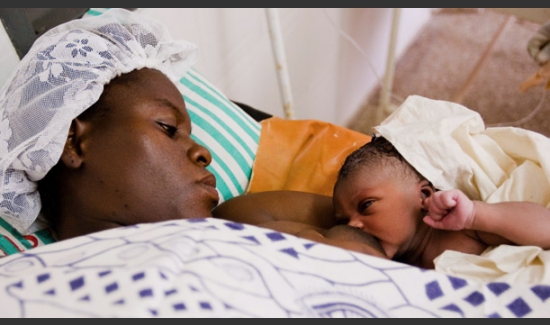Anybody who tells you that nature is all about intelligent design, well…just ask any woman who has given birth. But it does offer the occasional “unbeatable offer.” And breastfeeding is one of them.
The release of the first Lancet Series on breastfeeding tells us not only that breastfeeding could save the lives of 820,000 babies and 20,000 women, but could also cut health costs by hundreds of millions of dollars and inject even more (hundreds of billions) into economies via human capital improvements.
Powerful and persuasive
But then there’s an even more compelling claim – that human milk is “probably the most specific, personalised medicine that (baby) is likely to receive, given at a time when gene expression is being fine-tuned for life.” It goes on to explain that breastfeeding transmits elements of mothers own microbiome and immune responses, providing probiotics to support the growth of beneficial bacteria, “imprinting” baby’s microbiome for life. There is evidence that breastmilk also transmits multipotential stem cells.
This extraordinary message comes at a critical time. Newborn deaths are now nearly half of deaths among children under 5 (higher in many countries), and all governments have embraced a new target of reducing newborn deaths to at least 12 per 1,000 live births by 2030 and endorsed the Every Newborn Action Plan.
Now with just 15 years to hit this target, governments urgently need powerhouse strategies that can drive down the number of newborn deaths. With the Lancet’s full throttle endorsement of breastmilk as an essential medicine for babies (or perhaps a vaccine analogy is even better…), the case for investing in newborn breastfeeding programs just got stronger – much stronger.
All eyes should now be on flagship initiatives like WHO’s and UNICEF’s Baby Friendly Hospitals and the International Code of Marketing of Breastmilk Substitutes to demonstrate how they are increasing access to breastmilk for sick and vulnerable newborns.
The Bill & Melinda Gates Foundation’s Alive & Thrive program and Global Breastfeeding Advocacy Initiative should be prioritizing increases in early initiation rates and access to breastmilk for the most at risk newborns.
Global platforms like Every Woman, Every Child, A Promise Renewed, and Scaling Up Nutrition should routinely include breastmilk among the highest impact interventions for the youngest babies – right alongside skilled birth attendance, resuscitation equipment and antibiotics.
Financing arms like the Global Financing Facility should insist that national plans prioritize early initiation of breastfeeding to qualify for funding, and competitions like Saving Lives at Birth should award more grants for breastfeeding supportive technologies especially designed for newborns.
And as more than half of all newborn deaths are now occurring in fragile settings, humanitarian agencies should be fully integrating breastfeeding support into services for refugees and displaced persons. Breastfeeding is after all, an affirmative action policy for babies born in high-risk environments, as they disproportionately benefit from its protective properties.
The private sector too has a major role to play. Health insurance companies should be covering the costs of early access to breastmilk after birth, for all mothers and babies, and medical technology companies should be producing a new generation of devices that enable the routine provision of breastmilk as part of newborn intensive care everywhere.
Together, we should be setting new “stretch” targets (e.g., 90% early initiation rates at all major maternity hospitals, guaranteed access to professional lactation support within one hour of birth, a human milk bank within reach of every large maternity facility) and rewarding success with cash or non-cash incentives directly to mothers and hospitals conditional on their achievement.
To accelerate the development and adoption of the innovations with the greatest potential to increase access to breastmilk for babies, especially the most vulnerable, more than 200 breastfeeding champions have joined forces to form the Breastfeeding Innovations Team. The Team released the world’s first Call to Action for Human Milk Banks in 2015, and will continue to mobilize all stakeholders to advance access to breastmilk for vulnerable newborns.
Nature has empowered women with control over the production and distribution of an extraordinarily protective substance for the health and development of their newborns: breastmilk. Given the value placed on women’s bodies in most parts of the world it should be no surprise that breastmilk too has been historically undervalued. The Lancet series establishes once and for all the value of breastfeeding and the absolute necessity of pushing it to the top of the newborn and child survival agendas in the Sustainable Development Goal era.
The Breastfeeding Innovations Team is an alliance of more than 200 organizations and individuals committed to accelerating the development and adoption of the innovations with the greatest potential to increase access to breastmilk for babies, especially the most vulnerable. The Team works in support of the UN Secretary-General’s Every Woman, Every Child movement, the Every Newborn Action Plan and the Global Breastfeeding Advocacy Initiative.
To join the Breastfeeding Innovations Team, email leith@justactions.org
